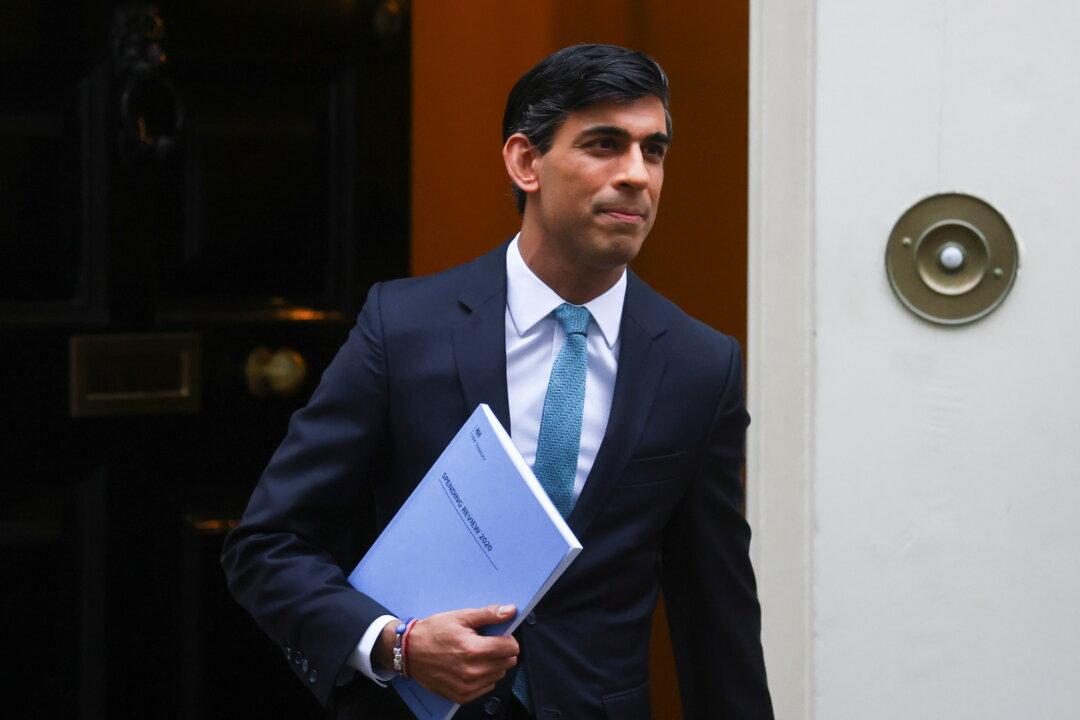The United Kingdom is forecast to borrow a total of 394 billion pounds ($527 billion) this year, the highest recorded level of borrowing in peacetime, Chancellor Rishi Sunak said on Wednesday.
The COVID-19 pandemic, which was caused by the CCP (Chinese Communist Party) virus, has had a substantial impact on public sector borrowing, the Office for National Statistics (ONS) said in its latest report.





